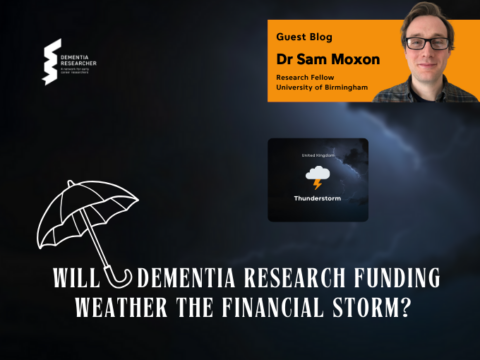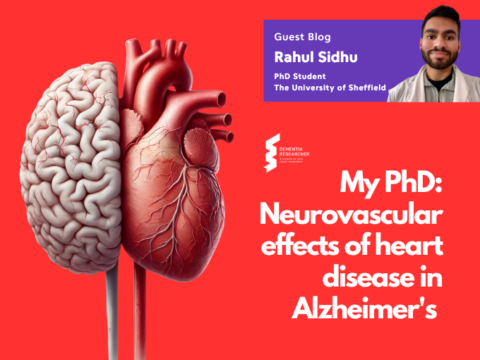The ever-growing interdependence of the world’s economies (globalisation) has meant we are more connected than ever before, but at what cost? Widening inequality, children living in poverty, people are having to choose between eating or heating. So how can we develop in a more equitable way? ‘Social Value’ is said to be the ‘dimensions by which to progress’ and hitched to the COVID-19 recovery. Social Value attempts to ensure social, economic, and environmental outcomes (the triple bottom line) contribute to reducing inequalities, and improving wellbeing and resilience of individuals, communities, and society. This is the underpinning concept of my PhD.
Under Integrated Care Systems, the Voluntary and community Sector [VCS] will play an increasing role in the design and delivery of health services. The Governments endeavour for ‘value for money’ means VCS organisations will also need to capture the ‘value’ their activities create, and it is becoming ever clearer that Social Value is reaching centrality in terms of the framework by which to do so.
In this blog I will discuss the progressive shift towards more equitable health systems and why now is a good time for change, and argue research needs to align with what is known as, the shifting ‘political economy’, to support wider cultural change that is essential to tackle the big issues that plague society, such as inequalities and environmental degradation.
Why hasn’t anything changed?
The rise of the global economy has detached itself from reality. Geared towards trade, market-minded policymaking has resulted in social, environmental, and economic crisis. For example, the UK is the 5th richest country in the world, though how this wealth is distributed in our society is among the worst. While the richest 10% become wealthier, 4.3 million children live in poverty in the UK (31%). This is just one example of many. But a fact I find increasingly baffling, is that average ‘subjective wellbeing’ (how people experience and evaluate their lives) has remained stagnant since the 70s despite economic growth. This information should contribute to economic and social policy, yet the Build Back Fairer report highlights how growing inequalities pre-COVID have been “exposed and amplified” by the pandemic, significantly in the case of people affected by dementia, who have experienced a ‘syndemic’. Dementia and COVID-19 have synergised, and along with political, economic, and social factors, has caused and exacerbated poor health and inequalities. Surely government doesn’t need any more signs that society is seriously unwell? As a political pundit recently said: “I would have thought killing your own citizens would be a line in the sand for government” (The Guardian’s Politics Weekly: Crisis continues as Johnson holidays in Spain, October 2021).

Political economy is an interdisciplinary branch of the social sciences that focuses on the interrelationships among individuals, governments, and public policy. Political economists study how economic theories such as capitalism, socialism, and communism work in the real world.
Has the Pandemic provided an opportunity for change?
The pandemic provides unfortunate optimism. Governments opted for wellbeing over economic gain in the form of lock-down. As the economy grounded to a halt, governments had no option but to implement policy based on wellbeing, such as the Furlough scheme and the £20 Universal Credit uplift, as these policy draw “attention to what is being produced or depleted” in everyday interactions, “in the form of the various elements that constitute subjective wellbeing” (Jordan, 2021, p. 13). Take for instance health, 80% of a person’s health is determined by social factors (social determinants of health), and just 20% healthcare.
Welcome announcement of funding for HSC and wider reforms such as the Additional Roles Reimbursement Scheme, and the VCSs role in system level governance and decision-making, which is expected to be announce April 2022, again provides some optimism. Political parties even seem optimistically united about the future of social care, suggesting care will draw on community-based support, be shaped at local level, and commissioning based on values (what matters most to people) rather than funding pressures (All-Party Parliamentary Group on Adult Social Care, 2021). However, I would argue, with no detail on how increased funding and money raised through the HSC Levy will be distributed in our society, it is hard to see how visions above materialise. Any efforts to ‘integrate care’, ‘Level Up’, or ‘Build Back Better’, are completely undermined by the deepness of inequalities in the UK. We need a new articulation value, one geared towards social wellbeing (social value) to progress in a fairer way.
Social Value a vehicle for social change
Over the past decade or so, a shift in the way we think about our economies, geared towards wellbeing, has been growing; referred to as ‘social value’. This broad concept of value attempts to ensure social, economic, and environmental outcomes contribute to reducing inequalities, and improving wellbeing and resilience of individuals, communities, and society. Modern thinkers in the area such as Max Weber, Adam Smith, and Karl Marx, perhaps did not foresee the role social value is now playing in transforming relations between private, public, and third sector organisations, to ensure services, outcomes and measures better reflect the people and communities they serve.
The Big Society was fundamental to the conservative’s 2010 general election manifesto, and aimed to reduce public spending and give an enhanced role to the VCS in public service delivery, based on the added social value they create. This was a significant shift in the way services were commissioned. As such the Public Services (Social Value) Act was introduced in 2012 to reshape disciplinary ideals, encouraging public authorities to consider proposals based on social value. The NHS Long Term Plan restates the importance of increasing the VCS role in HSC provision, to ensure the success of ‘integrated care’ reforms. Strong community engagement and innovative ways to improve outcomes for groups with the poorest health makes the VCS good value for money. Not just politically motivated though, leading research centres such as the Institute for Health Equity, recommend “incorporating social value in procurement and commissioning” to improve health and reduce inequalities.
Aligning with the shifting ‘political economy’?
Traditional research designs present a partial picture of value, and in some cases misconstrue it. Conventional forms of economic analysis fail to capture wider impacts in modern societies (Jordan, 2021), and most outcome measures for community-based interventions in dementia care are not what stakeholders’ value (Harding et al., 2020), and lack relevance to non-professionals (Tochel et al., 2019). Additionally, ‘Integrated Care Systems’ raise fundamental questions about the nature of value health initiatives such as the Worcestershire Meeting Centres Project should seek to achieve, including how value is captured and measured. This becomes more relevant when recognising only a portion of outcomes will be health related, but many will support individual, community, and societal wellbeing (social value).
Though distinct from objective quantification, the economic benefits of social value can be understood through a variety of specialised methods. One of the most common and comprehensive frameworks for measuring and accounting social value is Social Return on Investment [SROI]. In my next blog I will talk in depth about the principles of SROI, the frameworks strengths and limitations, and what I expect the analysis will tell us about the value of scaling up community-based interventions for people affected by dementia, and how this can support economic, social, and environmental development.
The impact of many interventions in dementia care will not be realised, for people or the system, if treated in narrow transactional, compliance-based, or cost-reduction terms. Demonstrating success and ensuring support and sustainability, depends on articulating value that aligns with the shifting ‘political economy’.
Ta
Nathan

Nathan Stephens
Author
Nathan Stephens is a PhD Student and unpaid carer, working on his PhD at University of Worcester, studying the Worcestershire Meeting Centres Community Support Programme. Inspired by caring for both grandparents and personal experience of dementia, Nathan has gone from a BSc in Sports & Physical Education, an MSc in Public Health, and now working on his PhD.

 Print This Post
Print This Post




